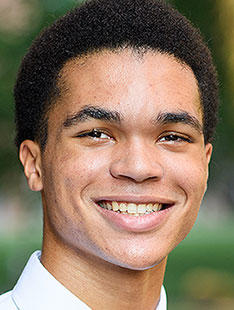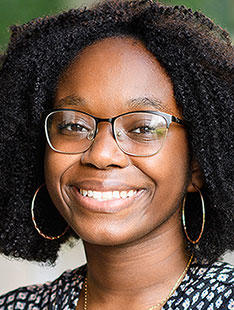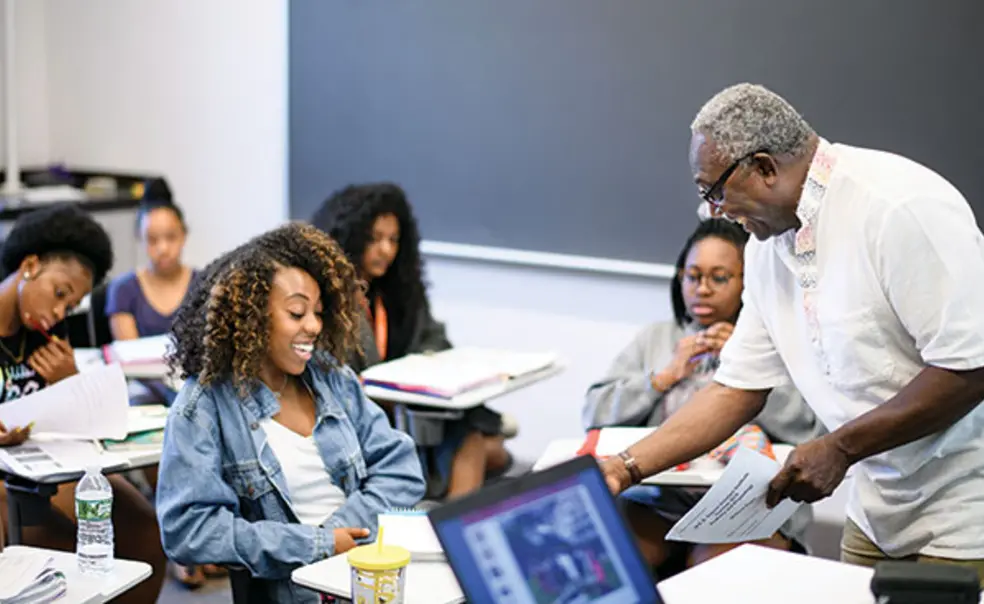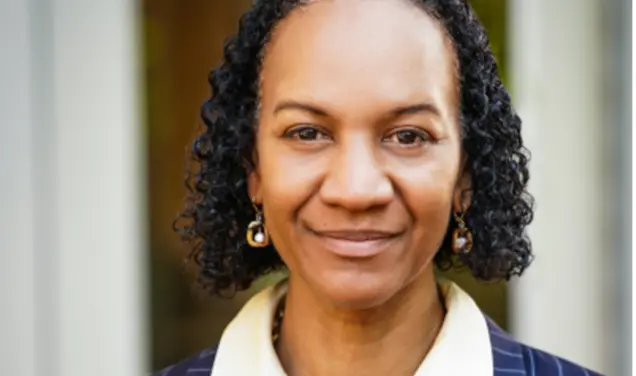Before he was a student at the University, Rhodes scholar Jordan Thomas ’18 spent two summers on Princeton’s campus to take part in the W.E.B. Du Bois Scholars Institute, a five-week academic program designed to prepare high school students to be leaders in their communities. Thomas, who is about to begin graduate school at Oxford, says the Du Bois Institute’s rigorous academics, college-prep programming, and emphasis on service were a major influence in his decision to attend Princeton over Harvard and Yale.
The program “really has a foundation built on giving back — that idea that through your own skills and talents, you will improve your own circumstances but then help others rise to the circumstances,” said Thomas, a graduate of University High School in the Newark Public Schools district. “When I think about where I got this value of making a difference and paying it forward — it all began with the Du Bois program.”
The institute — which was inspired by Du Bois’ idea that the most effective leadership will come from “the best and brightest minds” — was founded at William Paterson University in 1988. It moved to Princeton in 2000 and has been held on campus every summer since.
“Princeton shares our vision, in that they want to cultivate the best and brightest to solve the problems that confront our society,” said Sherle Boone, a retired psychology professor who is the founder and executive director of the Du Bois Institute. At least 10 Du Bois scholars have gone on to attend Princeton.
Participants come from families and communities that “have experienced historical barriers to achievement and opportunity,” the institute website says. This year’s 58 Du Bois scholars range in age from rising eighth-graders to high school seniors; 53 are black students, four are Hispanic, and one is Asian. Younger students take core classes in math, writing, reading, and African American culture and identity. Older students can choose from one of four tracks in the Scholar Academy: management/business, engineering, pre-med/neuroscience, or leadership (which focuses on issues in the social sciences and humanities).
Among the teachers are Princeton professors and graduate students, including African American studies professor Ruha Benjamin, who taught a course this summer called “Dynamics of Race, Ethnicity, and Gender.” She said the fact that her Du Bois students had similar racial and ethnic identities helped promote a different kind of thinking in the classroom.
“There’s a kind of intellectual freedom that comes when you don’t have to censor yourself because of race and racism,” Benjamin said. “When you’re in an environment with majority black students, you realize how different everyone is. Whereas when you’re in predominantly white settings, it’s an ascribed homogeneity based on what people think of you, and there’s also a sense that you have to band together and play down your differences in order to be cohesive.”
Jayna Bryant, who attends a largely white school in Wappingers Falls, N.Y., said the Du Bois program was a new experience for her. “It comforts me to be around people who think like me and who look like me,” she said.
Bryant is considering applying to Spelman, Hampton, North Carolina A&T, and Princeton. Her plans include pre-med studies, and she said the institute has helped her become a more critical thinker.
Students come from both affluent and underprivileged backgrounds — the Du Bois Institute is supported primarily by tuition, which ranges from $4,700 to $6,500, depending on the student’s age. (A limited number of tuition scholarships are available.) The program has partnerships with several school districts and receives donations from companies including Bristol-Myers Squibb and Johnson & Johnson.
DU BOIS SCHOLARS: IN THEIR OWN WORDS

AIDAN DENT, 16, of Burke, Va. Looking at: Pepperdine, UCLA, and Georgetown. Wants to study: law.
What do you like about the institute?
Since my school is predominantly white, I don’t really get to interact with people who are African American like me. I love coming here over the summer to feel at home.
How has the program helped you?
Without this program, I feel like I wouldn’t be as social or mature as I am, because it teaches you a lot about self-care and looking out for yourself and learning about yourself, as well as meeting other people who want to succeed like you.
What’s your favorite course this summer?
We have this course called “Scholarly Inquiry,” and it has a lot to do with psychology. One of the questions for my final exam is about whether it’s ethical to lie in certain situations. And it’s just really making me think, it’s making me research, and it’s definitely going to help me because I’m starting to think more outside the box.

DARLENE FOLAS, 16, of West Orange, N.J. Looking at: Cornell, Howard, Penn, and Princeton. Wants to pursue: ROTC/law.
What attracted you to the Du Bois Institute?
I went on the website and saw so many people who looked like me — black students, at Princeton. I was so intrigued by it that I had to give it a shot. So I did, I got accepted, and I went in my first year just because I wanted to prove to myself that I could do it.
What have you learned that you think will benefit you in the future?
Having an institute that believes in you and sees your potential … really gives you the confidence to put yourself out there. This year, I really want to learn how I can channel everything I’ve learned into a career and help my community.
What’s your favorite course this summer?
“Immigration and Migration in a Changing World.” I’ve learned that you have to have the courage to challenge everything, and I feel like that’s one of the biggest takeaways from this program. We can’t just accept everything for truth.












No responses yet